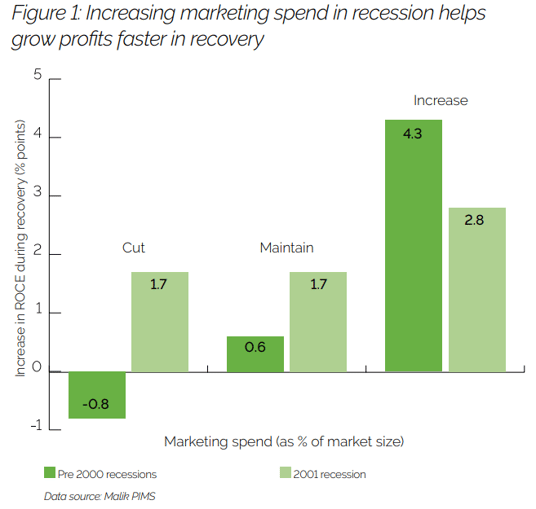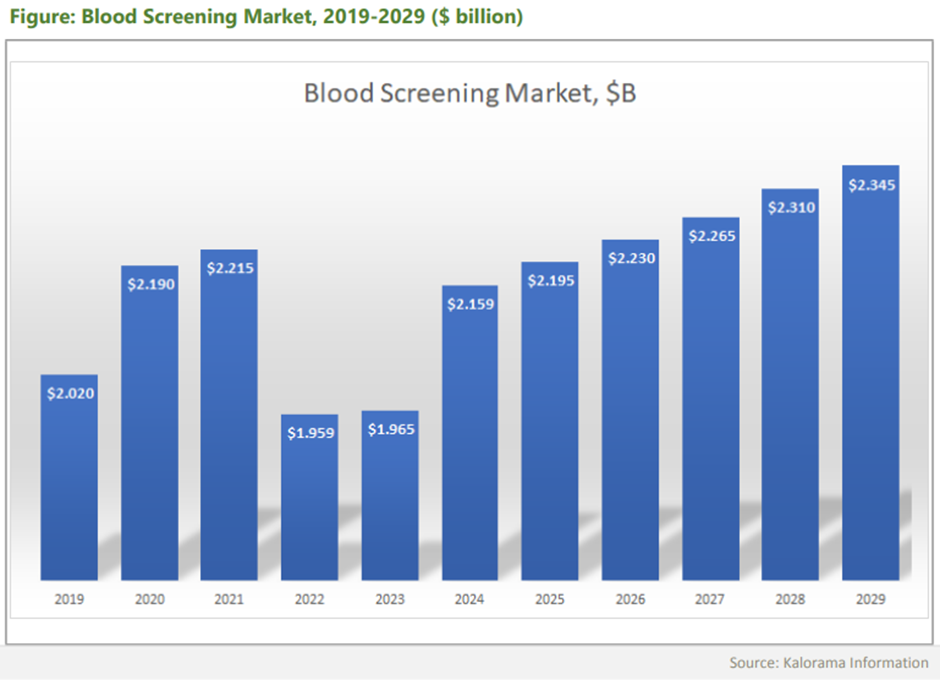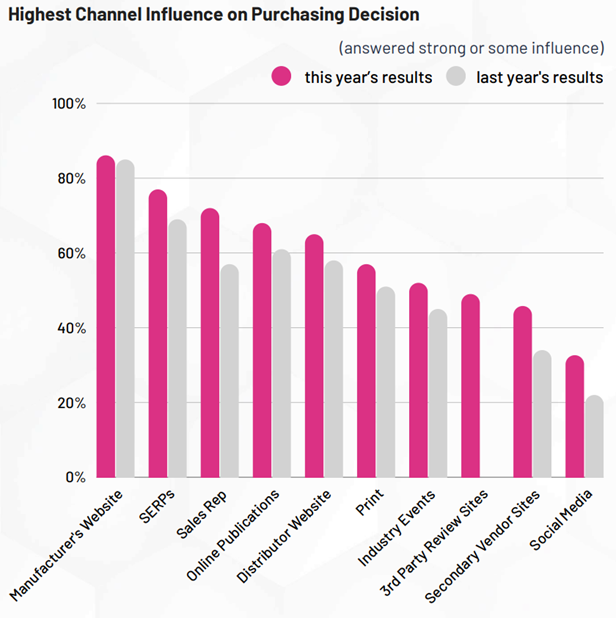Whilst every company is facing the recession from a different perspective, we felt it was important to share these insights because many businesses will benefit from the following knowledge. The following discussion is not pertinent to us or our clients.
Practitioners in Advertising (IPA)
Reducing marketing budgets during recession could do more to harm your business than help it, IPA research finds. Return on Capital Employed (ROCE) data, detailed in the report, found that businesses which bolstered marketing budgets, or created an Extra Share of Voice (ESOV) of more than 8% during a recession (i.e., investing in a higher share of total advertisement spend on their category over market share), were the ones who came out on top, shown in Figure 1.

It is forecasted that the global recession will not be brief, but IPA evidence collected over recent recessions supports that the longer marketing and advertising budget is sacrificed, the greater the damage to both brand and profits. This can preclude companies from benefitting from eventual improvements to the market. In the context of a recession, advertising budgets may seem like a logical place to tighten purse strings, especially when this advice comes from governmental bodies. However, misguided budgetary decisions combined with reactive price promotions have put some companies at ‘double-risk’ of slower growth and being outcompeted by rival businesses.
In addition, marketing cuts indirectly hurt your business, as competitors become more visible by filling the space you left behind. This is especially true of peers who have chosen to maintain or increase advertising investment. Perhaps unsurprisingly, businesses investing in ESOV strategies in the IPA Effectiveness Databank were more likely to report more substantial increases in both market share and profits.
Consistent investment in brand image and presence pays off. Whilst recessions come with many difficulties, greater or sustained investment in marketing could be one of the better ways to keep your brand moving forward.
Read the full IPA article here.






